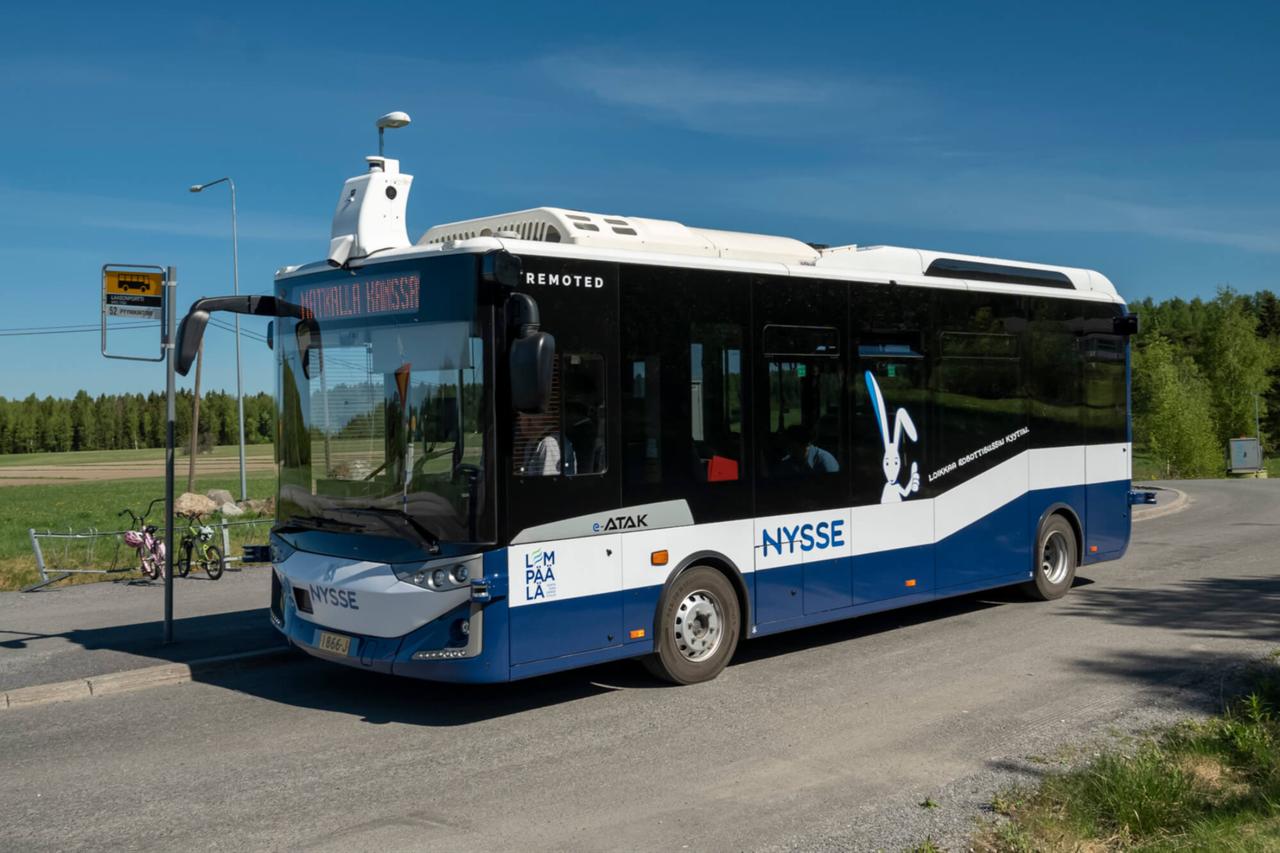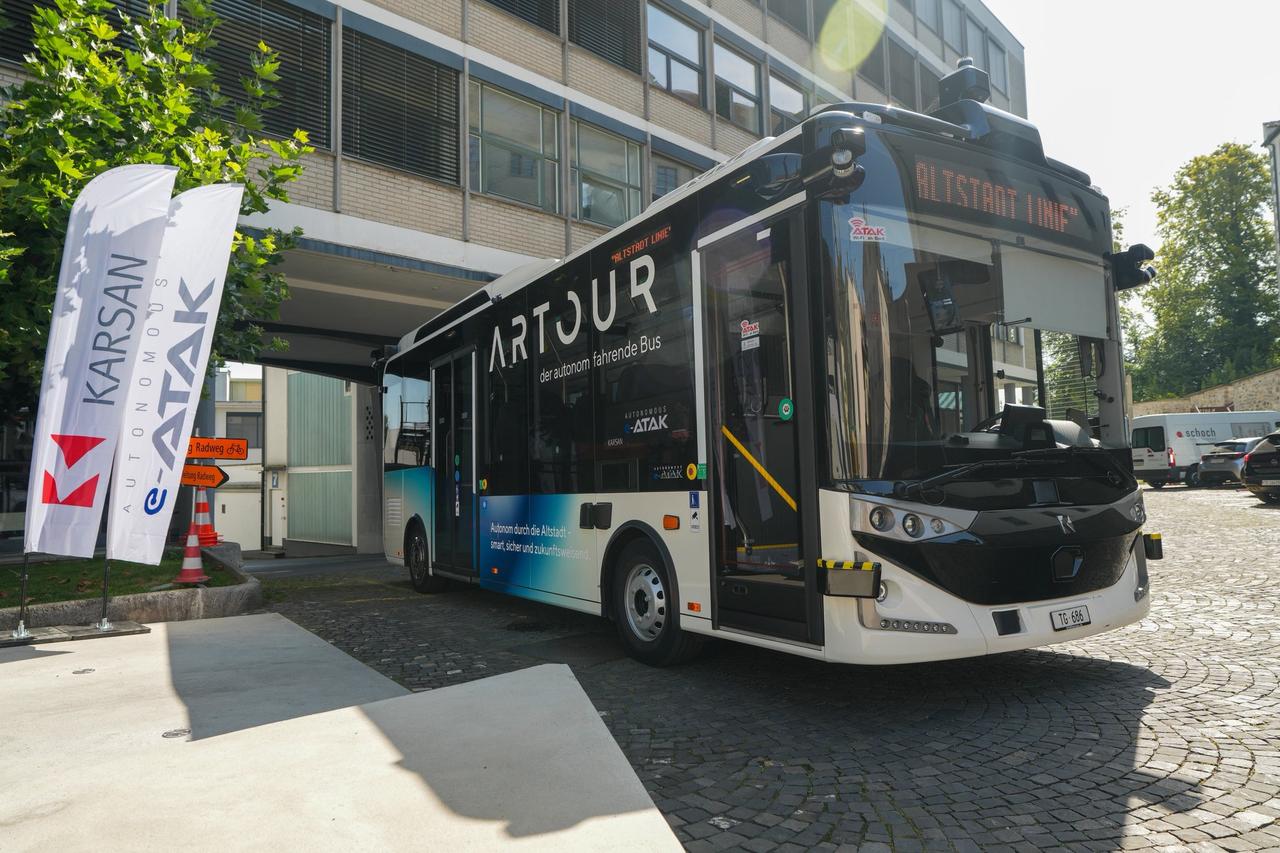
Türkiye’s commercial vehicle manufacturer Karsan has introduced its autonomous driving technology to Switzerland with the launch of the Karsan Autonomous e-Atak, the country’s first self-driving public transport vehicle.
According to Karsan, the electric and driverless e-Atak will begin operating this fall under the management of Eurobus Ostschweiz AG, serving a 2.5-kilometer (1.55-mile) route with nine stops between Arbon’s historic city center and the Saurer Werk 2 district. The bus will operate at a maximum speed of 30 kilometers per hour.
https://x.com/KarsanTR/status/1956010162516365517
The vehicle was officially handed over to TGA—The Technical Association of Arbon—at a ceremony attended by Türkiye’s Consul General in Zurich Fazli Corman, Thurgau Canton Minister Urs Martin, Arbon Mayor Rene Walther, Karsan CEO Okan Bas, ADASTEC CEO Dr. Ali Ufuk Peker, Federal Roads Office (FEDRO) Deputy Director Edwin Wieland, project partners, and representatives of Karsan’s Swiss distributor HCI. The event concluded with a public demonstration of the vehicle’s autonomous driving capabilities.
https://www.youtube.com/watch?v=6aQVRAWUnvg&ab_channel=SelmanBozk%C4%B1r
Speaking to Anadolu Agency, Consul General Corman noted that Karsan’s electric buses, equipped with ADASTEC’s autonomous software, have been deployed in 12 countries. He recalled first witnessing such a project in Stavanger, Norway, in 2021, when he served as Türkiye’s ambassador there, and described seeing the technology now in Switzerland as “a source of pride.”
Swiss federal and municipal officials praised the competence of Karsan and ADASTEC, highlighting the bus’s ability to operate safely in complex city environments—including narrow historic streets, mixed traffic, and pedestrian zones—without human intervention.

Karsan CEO Bas said the project marks another milestone after similar deployments, including at Rotterdam Airport.
“This national pilot project shows that autonomous mobility is not the future, but a concrete transportation solution of today,” he said, adding that a second phase will introduce teleoperation technology within a year.
ADASTEC CEO Peker described the launch as “a realized vision,” demonstrating how safe, accessible, and sustainable public transport can integrate into a city’s unique character while connecting communities on a large scale.